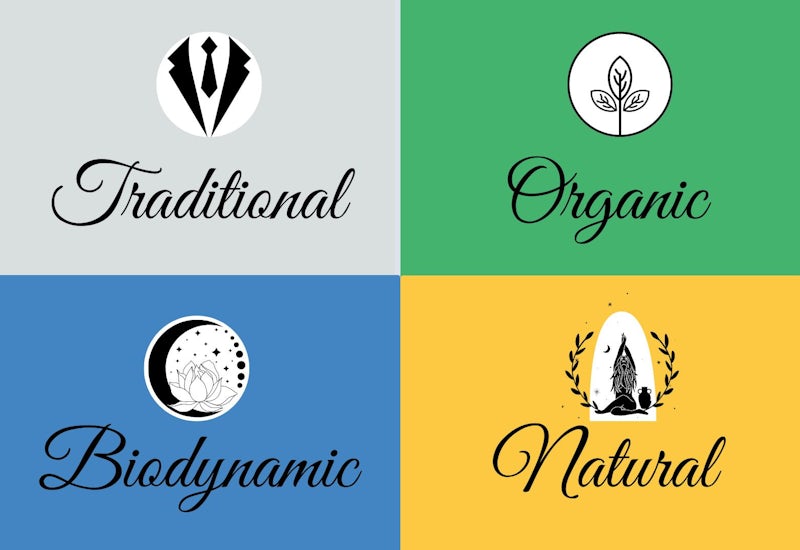09.03.2023
The differences between Organic, Natural, Biodynamic and Traditional wine

Traditional, Organic, Biodynamic and Natural methods are all approaches to winemaking that differ in their philosophies and practices in both vineyard and winery. So what's the difference between them, can we taste the difference and what should we be buying? Let's start with the basics.

Traditional winemaking is the most common and widely used approach. It involves the use of cutting edge modern agricultural techniques and products to cultivate the grapes in the vineyard, control pests, manage vine diseases and ferment the wine. Synthetic fertilisers, pesticides, sprays, sulfur and commercial yeasts can be used. Traditional winemakers can also use oak barrels to age their wine and may filter and fine it to remove any sediment or impurities. Traditional wines tend to make high quality, clean, clear and stable wines with good ageability and consistency between vintages. Often the most affordable wines.

Organic winemaking is similar to traditional winemaking, but swaps synthetic fertilisers, pesticides and sprays for organic substitutes to cultivate the grapes. During fermentation, only natural yeasts can be used. Sulfites can also be used in minimal amounts. Organic wines tend to produce good quality wines that are fresh, fruity and a little more "natural" in flavour with variable ageability and fluctuate in quality between vintages. Organic practices are costly and the wines may demand higher prices than others.

Biodynamic winemaking is based on the principles of anthroposophy, which views the farm as a holistic organism, connected to the wider universe. Biodynamic winemakers use only natural preparations to fertilize the soil, control pests and diseases, and enhance the quality of the grapes. These preparations may include compost, herbal teas, and animal manure. They also follow a lunar calendar to determine when to plant, prune, and harvest the grapes. Biodynamic winemakers use only natural yeasts for fermentation and try to avoid sulfites, filtering and fining the wine only if it is necessary. Biodynamic wines tend to produce high quality wines that are vibrant, energetic, quite complex and terroir driven with good ageability. Biodynamic wines can be more expensive than most.

Natural winemaking is an approach that focuses on minimal intervention in the winemaking process. Natural winemakers only use organic or biodynamic grapes and avoid adding any additives, including sulfites, to the wine during fermentation and bottling. The grapes are left to ferment naturally, often in concrete or clay vessels, and are bottled after fermentation without any fining, filtering or preservatives. Natural wines tend to produce unique, intriguing and funky wines that reflect the natural elements of the vineyard and the vintage. Often cloudy and somewhat alive, Natural wines vary quite a lot in quality and price and are most likely to suffer from wine faults like brettanomyces, volatile acidity, secondary fermentation and mousiness. This is due to the lack of sulfur and human intervention during the winemaking process.
So, now we know about each approach...what should we be buying? Well, the answer to that is totally up to you and your preferences. If you like clean and reliable wine, go for something that is Traditionally made. If you prefer something wild and atypical, go for a Naturally made wine. If complex and terroir driven wine is your thing, Biodynamic and Organic wine might be your jam...but you can always do what we do and go for the wine that you love the best, regardless of the approach behind it.

